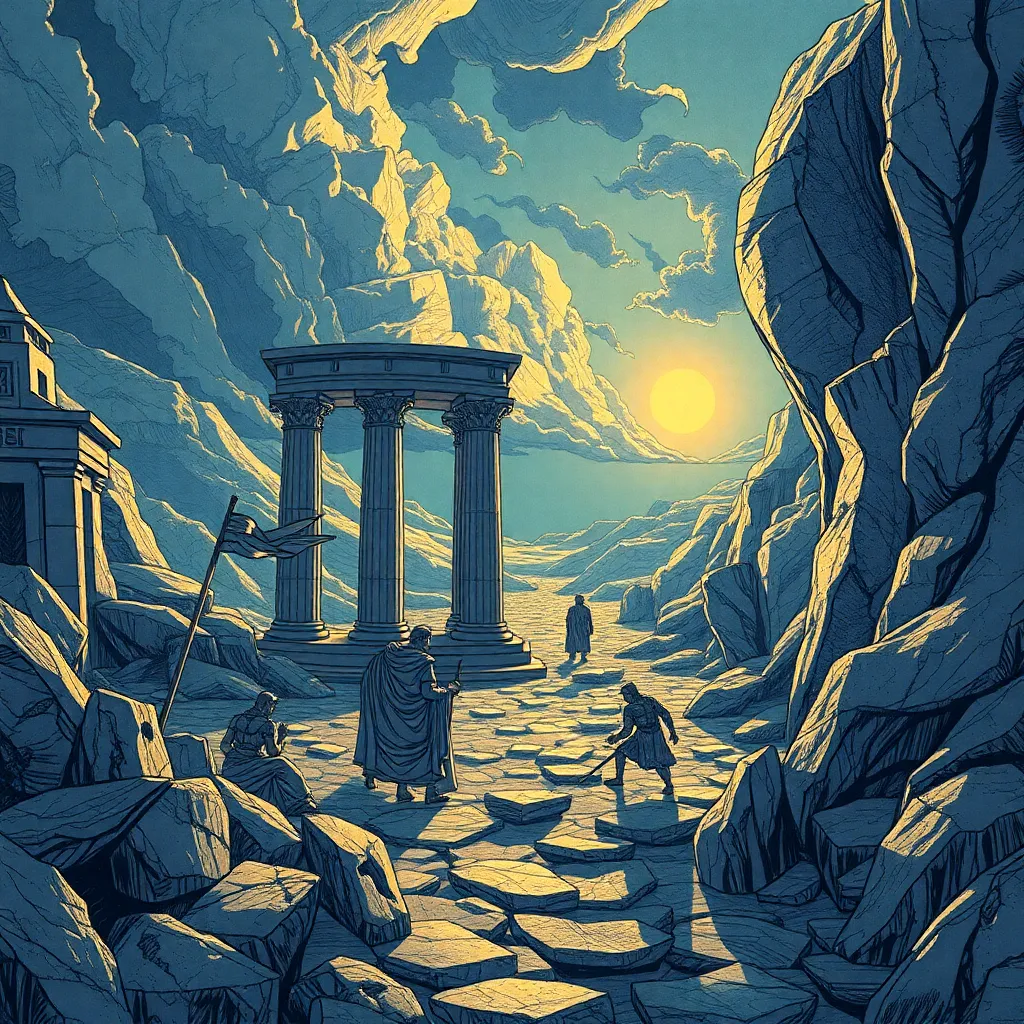The Odyssey’s Influence on Modern Heroic Narratives
I. Introduction
“The Odyssey,” attributed to the ancient Greek poet Homer, is one of the most significant works in Western literature. It chronicles the adventurous journey of Odysseus as he attempts to return home after the Trojan War. This epic poem not only provides thrilling tales of adventure but also deep insights into human nature, morality, and the quest for identity.
Heroic narratives, often defined by their central figures who embark on quests, face trials, and undergo transformations, have evolved significantly over the centuries. These narratives reflect societal values, cultural contexts, and the human condition. This article aims to explore the profound influence of “The Odyssey” on contemporary storytelling, examining how its themes, structures, and character archetypes continue to resonate in modern heroic narratives.
II. The Hero’s Journey: Archetypes and Structure
Joseph Campbell’s concept of the “monomyth,” or the Hero’s Journey, is a framework that outlines the common stages many heroes experience across various cultures. This structure includes key elements such as the call to adventure, the initiation, trials, and the return.
In “The Odyssey,” the journey of Odysseus exemplifies these stages:
- Call to Adventure: Odysseus’s desire to return home after the Trojan War.
- Trials and Challenges: Encounters with mythical creatures like the Cyclops and Sirens.
- Return and Reintegration: Odysseus’s return to Ithaca and reclaiming his place.
When compared to modern heroic narratives, such as those found in superhero films or fantasy literature, the echoes of Odysseus’s journey are unmistakable. Characters like Frodo Baggins from “The Lord of the Rings” and Harry Potter also embark on significant journeys filled with challenges and growth, underlining the timeless nature of Campbell’s monomyth.
III. Odysseus as the Archetypal Hero
Odysseus embodies the archetypal hero through his intelligence, bravery, and resourcefulness. He is not merely a warrior but a thinker who often relies on cunning over brute strength. His famous encounter with the Cyclops, where he cleverly deceives Polyphemus, exemplifies his quick wit.
However, Odysseus is not without flaws. His pride and longing for glory often lead him into perilous situations, reflecting the moral complexities that many modern heroes exhibit. Characters such as Tony Stark (Iron Man) or Walter White (Breaking Bad) also grapple with their shortcomings, making them more relatable and human.
This exploration of flaws allows modern narratives to challenge or reflect upon Odysseus’s archetype, creating heroes who are multi-dimensional and complex.
IV. Themes of Adventure and Homecoming
The theme of adventure is central to “The Odyssey,” representing not just physical journeys but also the quest for knowledge and self-discovery. Each adventure Odysseus undertakes teaches him valuable lessons about loyalty, humility, and the importance of home.
Homecoming, or nostos, carries significant emotional weight in the narrative. For Odysseus, returning to Ithaca symbolizes the restoration of order and the reunification with loved ones, particularly Penelope and Telemachus.
Modern narratives often revisit these themes, exploring the tension between adventure and the longing for home. For instance, in films like “The Wizard of Oz,” characters embark on journeys only to realize the importance of home. Similarly, in “Avatar,” Jake Sully’s adventures lead him to question where his true home lies.
V. The Role of Divine Intervention and Fate
In “The Odyssey,” the influence of gods and fate plays a crucial role in shaping the narrative. Deities like Athena offer guidance, while Poseidon embodies the obstacles Odysseus faces. This divine intervention raises questions about free will versus fate, as Odysseus navigates a world where both elements are at play.
Contemporary narratives also grapple with similar themes. Superhero stories often feature characters who are either blessed or cursed by their powers, facing destiny while trying to exert their free will. For instance, Spider-Man’s mantra, “With great power comes great responsibility,” reflects the balance between fate and personal choice.
VI. Female Characters and Their Impact
Key female figures in “The Odyssey,” such as Penelope and Athena, play pivotal roles in the story. Penelope’s loyalty and intelligence in outsmarting suitors while waiting for Odysseus exemplify strength in adversity. Athena, the goddess of wisdom, provides crucial support and guidance to Odysseus, showcasing the power of female influence in his journey.
The evolution of female roles in heroic narratives has seen women transition from supportive figures to central protagonists. Modern representations, such as Katniss Everdeen in “The Hunger Games” or Wonder Woman, draw inspiration from characters like Penelope and Athena. These contemporary heroines embody strength, resilience, and independence, reflecting changing societal values.
VII. Cultural and Historical Context
The cultural and historical context of “The Odyssey” significantly impacts its themes and characters. Written in an era that valued heroism, honor, and loyalty, the poem reflects the societal norms of ancient Greece. The struggles and virtues presented resonate with timeless human experiences.
In contrast, modern heroic narratives often incorporate contemporary societal issues, such as identity, justice, and moral ambiguity. This shift illustrates how stories evolve to address the concerns and values of different eras while still drawing upon the foundational elements found in classics like “The Odyssey.”
The enduring legacy of “The Odyssey” is evident across cultures, influencing countless works of literature, film, and art, demonstrating the universal appeal of its themes and characters.
VIII. Conclusion
In summary, “The Odyssey” has profoundly influenced modern heroic narratives, providing a template for the hero’s journey, character archetypes, and essential themes. Odysseus’s complexities, the significance of adventure and homecoming, and the interplay of divine intervention and fate resonate deeply in contemporary storytelling.
The timeless relevance of “The Odyssey” invites reflection on the nature of heroism and the human experience. As we look to the future of heroic narratives in literature and media, it is clear that the echoes of Odysseus’s journey will continue to inspire and shape the stories we tell.




